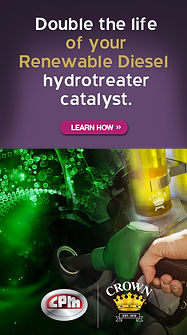Clean Fuels NY Coalition urges state Climate Action Council to adopt clean fuel standard

The Clean Fuels NY Coalition sent a letter in early May to New York state’s Climate Action Council, the body in charge of administering the Climate Leadership and Community Protection Act passed in 2019, calling for the body to include a clean fuel standard (CFS) or low carbon fuel standard (LCFS) in the list of policy tools to meet the greenhouse gas reductions required by CLCPA. Among many other provisions, the law requires GHG emissions reductions of 85 percent by 2050; 100 percent zero-emission electricity by 2040; and 70 percent renewable energy by 2030. Dozens of signatories endorsed the letter to CAC calling for a CFS or LCFS.
“A CFS is a technology-neutral, performance-based standard that requires fuel manufacturers and importers to reduce the carbon intensity of their fuels by a set amount, which in New York could be scaled to an aggressive enough target to help achieve the CLCPA’s statutory requirements,” the letter states. “California and Oregon’s CFS has successfully reduced transportation emissions at negligible cost to consumers and no cost to the state government other than administering the program. In 2019 alone, the California CFS resulted in the reduction of 2.5 billion gallons of fossil fuels with 20 percent of the credits awarded to the electric sector despite accounting for a small share of transportation fuels.”
The letter says transportation is the No. 1 source of GHG emissions in New York. “Achieving the CLCPA mandate of reducing GHG emissions by 85 percent by 2050 will require eliminating almost all transportation emissions,” reads the letter. “Indeed, the pathways analysis presented to the Climate Action Council and Transportation Advisory Panel indicates that we must reduce transportation emissions by 31 to 33 percent by 2030 and 86 to 97 percent by 2050 in order to comply with the CLCPA. If we are to meet this target, we must begin reducing transportation emissions as soon as possible. … A CFS can accelerate the transition off fossil fuels and ensure that we remain on track even without new budgetary programs. Based on the value of credits in California and fuel use in New York, we project the CFS would generate $1 billion to $1.4 billion annually for clean transportation, paid for by fossil fuel providers.”
The New York CFS is modeled on current legislation sponsored by Assemblywoman Carrie Woerner and state Sen. Kevin Parker and would require manufacturers and importers of gasoline and diesel to either reduce the carbon intensity of their fuels or purchase credits from low carbon-intensity fuel manufacturers and importers.
“The CFS provides meaningful support, paid by polluters, for public transit agencies, school buses, delivery vans, and for-hire vehicle fleet operators to switch to electric vehicles,” the letter states. “We expect electrification to be the primary beneficiary of a CFS, especially as the cap on carbon intensity is ratcheted down over time and as the grid gets greener. However, technology is not currently available or cost-prohibitive for the widespread transition of medium- and heavy-duty fleets, such as sanitation trucks and tractor-trailers, to electric engines. The elegance of a CFS as a performance-based standard is that it would still produce immediate and significant emission and air pollution reductions from these vehicles by providing them with an incentive to switch to renewable alternatives that can be readily dropped into existing engines to replace harmful fossil fuels. As the CFS carbon intensity cap is lowered over the duration of the program, these vehicle types would be provided with an economic incentive to switch to fully zero emission ahead of CLCPA mandates that they do so.”
The letter concludes by stating that a CFS would reduce transportation emissions by at least 20 percent over the next decade at no cost to the state.
To read the letter in its entirety, or to view the more than 70 signatories, click here.




















-adjusted-to-spec.jpg)



